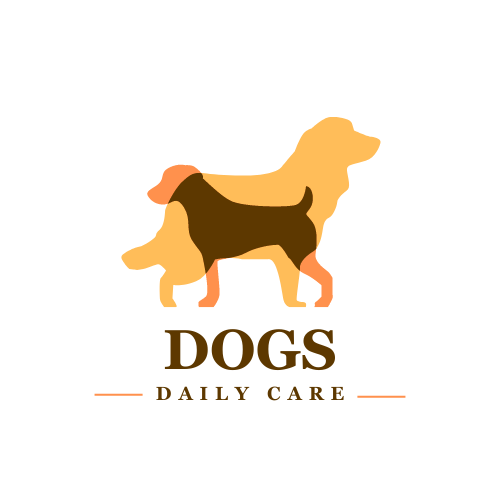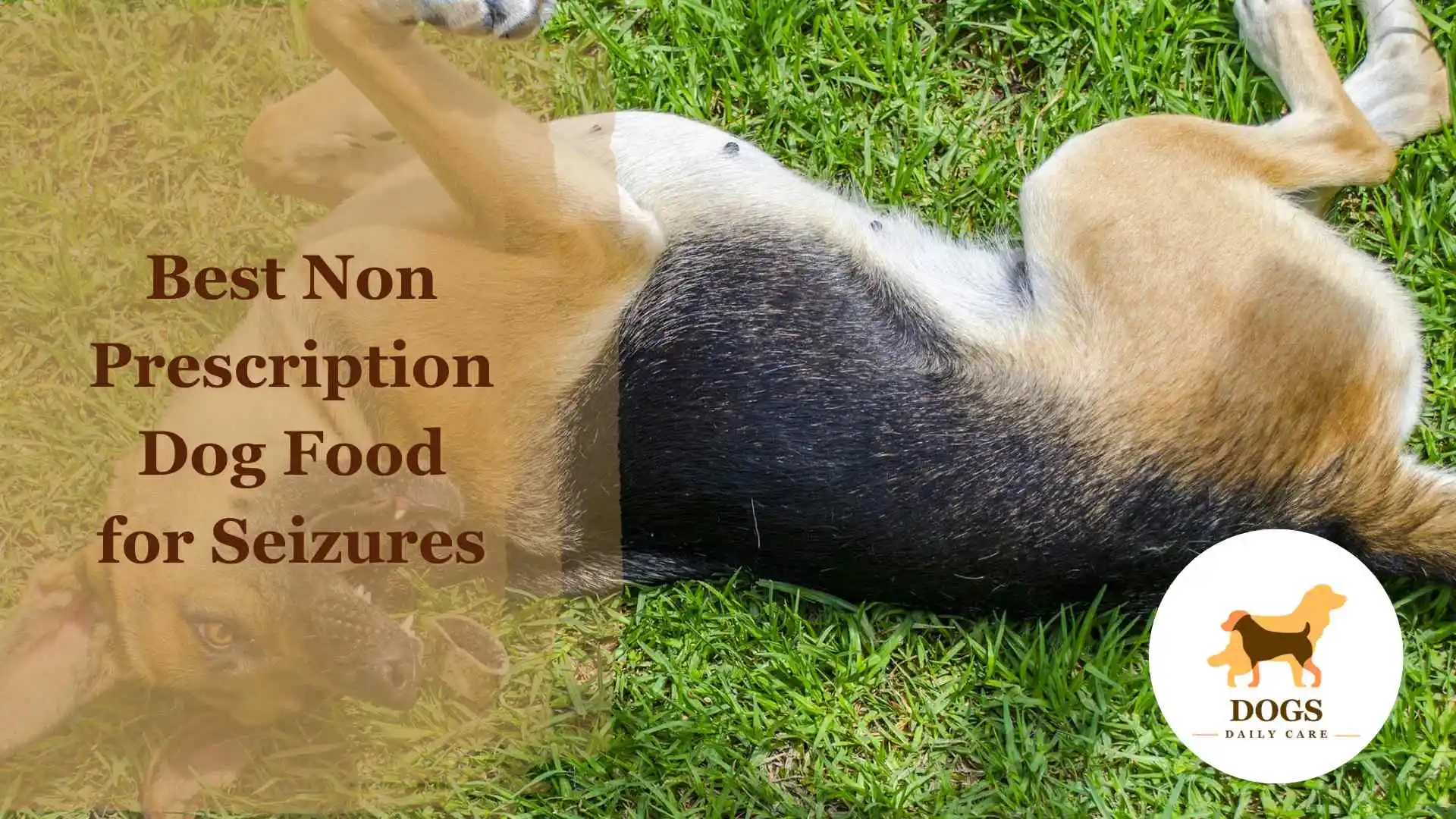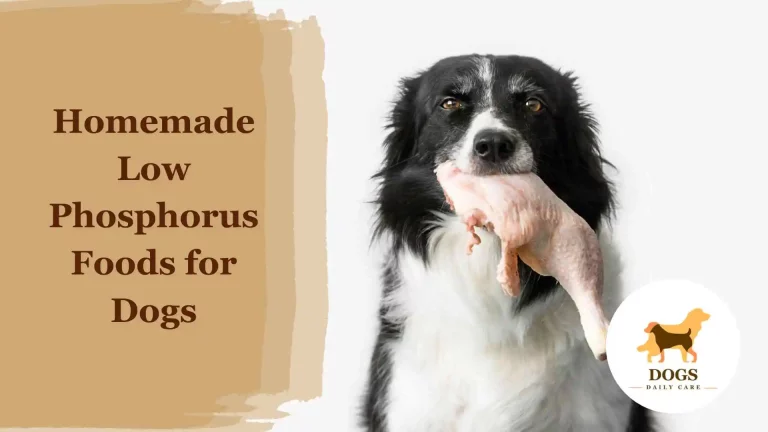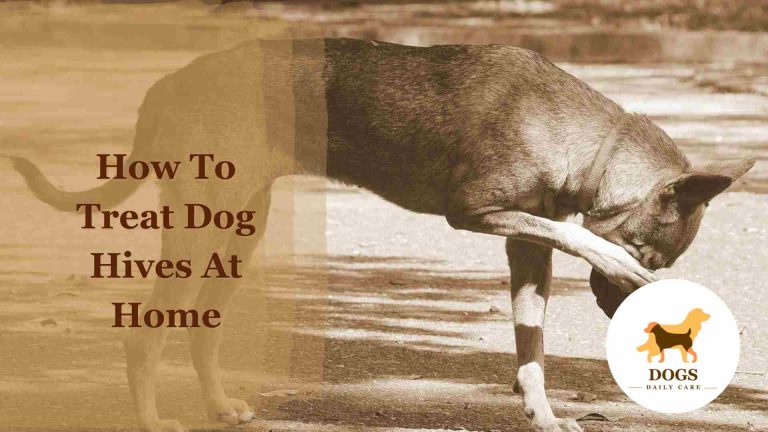Best Non Prescription Dog Food for Seizures – An Ultimate Guide
Every dog owner’s worst fear is seeing their furry friend in distress. One of the most alarming health issues a dog can face is seizures. While there are numerous causes, from genetics to environmental triggers, the role of diet cannot be underestimated.
Diet plays a pivotal role in a dog’s overall well-being, and it’s no different when it comes to managing seizures. Just as certain foods can aggravate the condition, the right non-prescription dog food can support a dog’s neurological health, potentially reducing the frequency or severity of seizures.
In this guide, we’ll delve deep into the best non-prescription dog foods for seizures, highlighting their benefits and helping you make an informed choice. Because when it comes to our four-legged companions, ensuring they receive the right nutrition can make a world of difference.
Understanding Dog Seizures

Witnessing your dog experience a seizure can be a heart-wrenching moment for any pet parent. Seizures are sudden bursts of uncontrolled electrical activity in a dog’s brain. They can manifest in various ways, ranging from subtle twitching to more severe and noticeable spasms.
There are different types of seizures in dogs. The most common are generalized seizures, where the whole brain is affected and can lead to a loss of consciousness. Focal seizures impact only a part of the brain and may cause unusual movements in one limb or one side of the body. Sometimes, focal seizures can evolve into generalized seizures. Another type is cluster seizures, where multiple episodes occur within a short period, requiring immediate veterinary attention.
The triggers for these seizures can be diverse. Genetic predisposition, head injuries, metabolic disorders, toxins, or even certain infections can lead to seizure activity in dogs. As we move forward, we’ll explore how diet intersects with these triggers and how the right nutrition can act as a supportive pillar in managing seizures in our canine friends.
Role of Diet in Seizure Management
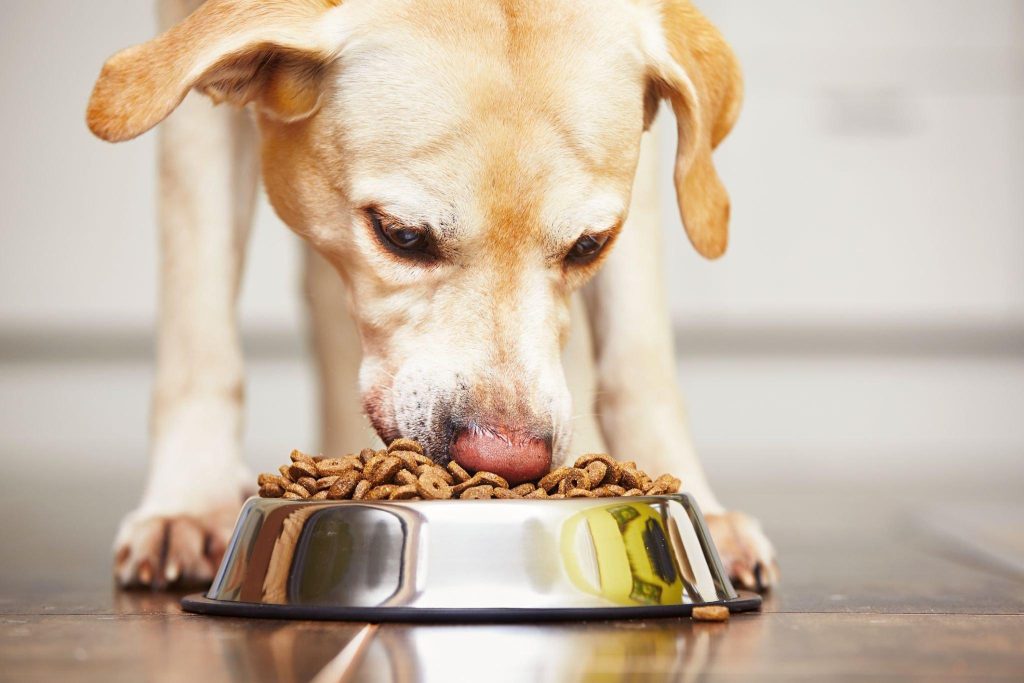
When we think about seizure management in dogs, diet might not be the first remedy that comes to mind. However, much like humans, what our canine companions consume plays a significant role in their neurological health. A well-balanced diet can offer vital nutrients that support brain function and reduce the potential for seizure triggers.
Certain ingredients in dog foods can exacerbate or even trigger seizures in susceptible dogs. For instance, artificial additives, preservatives, and certain allergens can aggravate the condition in some pets. On the flip side, foods rich in Omega-3 fatty acids, antioxidants, and specific vitamins can support neuronal health, reducing the frequency or intensity of seizures.
It’s also worth noting that consistency in feeding routines and monitoring for food intolerances is crucial. Rapid changes in diet or feeding foods that a dog is intolerant to can potentially act as seizure triggers. As we navigate the maze of dog foods available, understanding the impact of specific ingredients and the benefits of a tailored diet can be a game-changer in seizure management.
What to Look for in Non-Prescription Dog Food for Seizures
Choosing the right non-prescription dog food for a canine experiencing seizures can be a daunting task, given the plethora of options available. However, being informed about key ingredients and their benefits can make this task considerably more manageable.
First and foremost, it’s essential to scan the ingredient list. Avoid dog foods that contain common allergens like corn, soy, and certain grains, as these can sometimes be linked to seizures in sensitive dogs. Equally crucial is to sidestep artificial additives and preservatives, which can act as potential triggers. Instead, look for natural ingredients that offer wholesome nutrition without any fillers.
Nutrients that support brain health should be high on your priority list. Omega-3 fatty acids, predominantly found in fish oil, have shown promise in supporting neurological health. Foods rich in antioxidants, such as blueberries and spinach, can combat oxidative stress, which might play a role in seizures. Also, keep an eye out for dog foods fortified with essential vitamins and minerals, ensuring a balanced diet that can contribute to overall well-being and seizure management.
Top Non-Prescription Dog Foods for Seizures (List and Review)
1. CanineNeuro Health by Nature’s Balance
Description: Crafted with the brain health of dogs in mind, CanineNeuro Health is a blend of wild-caught fish, organic blueberries, and fortified vitamins. It offers a grain-free solution without any artificial additives.
Pros:
- Rich in Omega-3 fatty acids from fish sources.
- Contains natural antioxidants from organic blueberries.
- Grain-free and devoid of common allergens.
Cons:
- Might be a bit pricey for some dog owners.
- Limited protein variety.
2. BrainBoost Diet by PurePaws
Description: A holistic approach to canine nutrition, BrainBoost Diet integrates chicken, sweet potatoes, and flaxseed to offer a balanced meal that supports brain health and overall well-being.
Pros:
- Packed with lean protein from chicken.
- Contains essential fatty acids from flaxseed.
- Free from artificial preservatives and colors.
Cons:
- Not suitable for dogs allergic to poultry.
- Some dogs might need time to adjust to the flavor.
3. NeuroCare Essentials by Wholesome Tail
Description: Prioritizing natural ingredients, NeuroCare Essentials combines beef, quinoa, and a mix of superfoods, ensuring dogs get a diet that’s as delicious as it is nutritious.
Pros:
- High-quality beef as the primary protein source.
- Rich in diverse nutrients from superfoods.
- No fillers or by-products.
Cons:
- Might be too rich for dogs with sensitive stomachs.
- Grain-inclusive, which might not suit all dogs.
Additional Tips for Managing Dog Seizures

While selecting the right diet is paramount, there are other facets to managing seizures in dogs that deserve attention. Understanding these can equip you with a holistic approach to ensure your furry friend leads a comfortable, happy life.
Regular Veterinary Check-ups
Always maintain a routine of regular vet visits. This allows for timely interventions, dosage adjustments (if your dog is on anti-seizure medications), and monitoring of the overall health. Keeping an open line of communication with your veterinarian ensures you’re always updated on the latest findings and best practices.
Monitoring and Documenting Seizure Activity
Keep a diary or log of when seizures occur, their duration, and any potential triggers you’ve observed. This can be invaluable in identifying patterns or new triggers. The more data you have, the better equipped you and your vet will be in managing the condition.
Stress Management and Environment Control
Just like humans, dogs can be affected by stress, which can sometimes trigger seizures. Ensure your dog has a calm environment, avoid sudden changes in their routine, and offer toys or activities to keep them mentally stimulated. Familiarity and routine can provide a sense of security for dogs prone to seizures.
Frequently Asked Questions (FAQs)
1. Can diet alone control seizures in dogs?
While diet plays a pivotal role in supporting a dog’s neurological health, it’s not always a standalone solution. Some dogs may require medications or other treatments in conjunction with a specialized diet. Always consult with a veterinarian for a comprehensive approach.
2. Are there any supplements recommended for dogs with seizures?
Some supplements, such as Omega-3 fatty acids and certain antioxidants, can support brain health. However, it’s essential to discuss with your vet before introducing any new supplement to ensure it’s suitable and doesn’t interfere with other treatments.
3. How often should I switch or try new foods for my dog with seizures?
Consistency is key for dogs prone to seizures. Rapid changes in diet can be potential triggers. If considering a switch, do it gradually over a week or two, and always monitor your dog’s reaction to the new food.
4. Does organic dog food make a difference for dogs with seizures?
Organic dog food can reduce the risk of exposure to pesticides, artificial additives, and other potential irritants. While it might be beneficial, the most critical factor is the quality and appropriateness of ingredients for your dog’s specific needs.
5. What immediate steps should I take if my dog has a seizure?
Stay calm. Ensure your dog is in a safe location where they can’t get hurt. Avoid putting your hand near their mouth. Time the seizure, and once it ends, comfort your dog as they may be disoriented. Always contact your vet post-seizure to discuss the event and any necessary next steps.
Conclusion
Navigating the world of dog health, especially when it comes to conditions like seizures, can be overwhelming for pet parents. But with the right knowledge and resources, it’s possible to provide our furry companions with a quality life. The significance of a well-balanced, non-prescription diet tailored for seizure management cannot be emphasized enough. Additionally, you can also take a look at the best non-prescription dog food for kidney disease.
While diet is a crucial piece of the puzzle, always remember to stay in close consultation with your veterinarian. Combining expert advice with the insights provided in this guide can help ensure that your dog receives the best care possible, minimizing the impact of seizures and maximizing their overall well-being.
